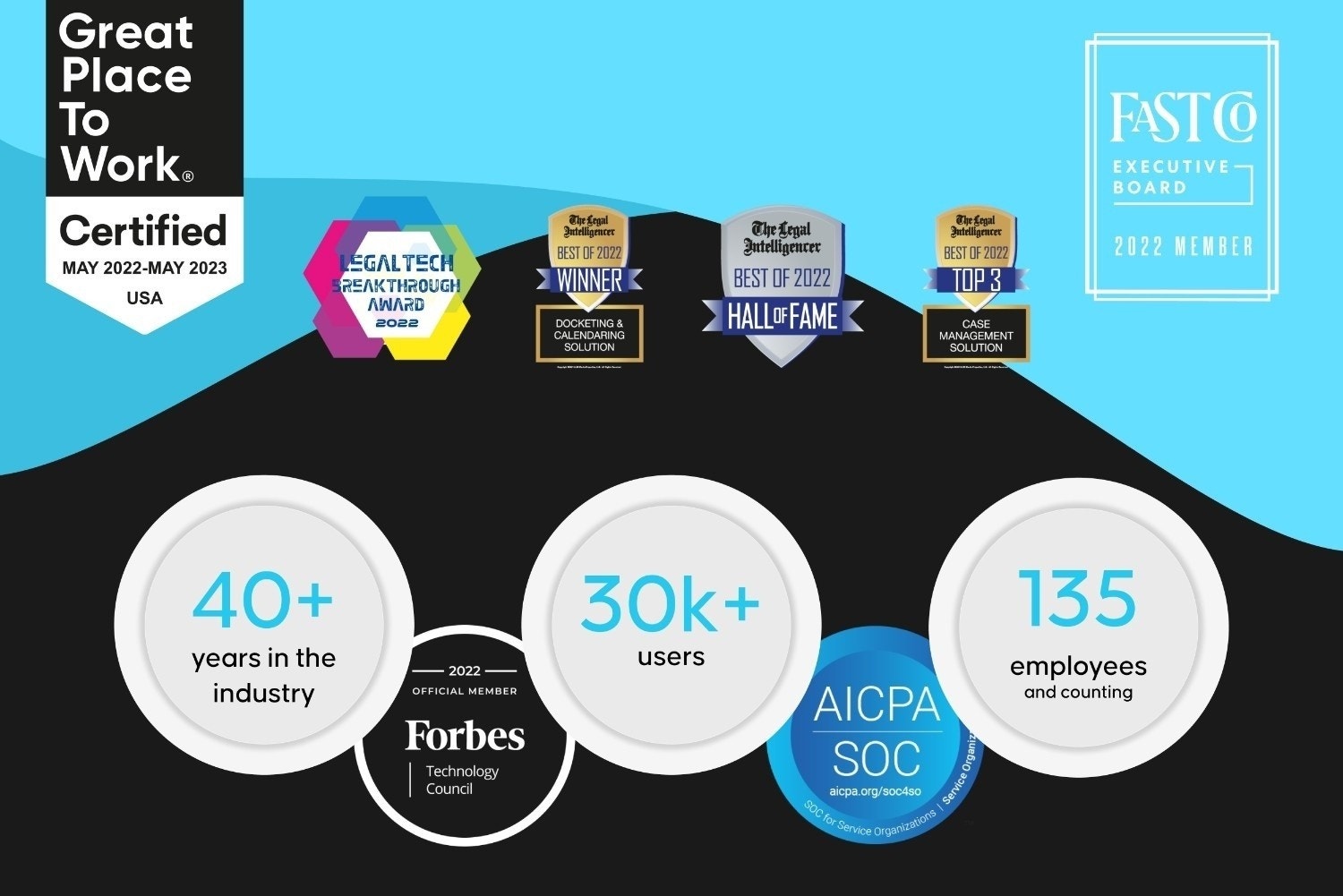
Legal AI, Legal Trends, Legal Tech
Read how personal injury firms are gaining a competitive advantage in 2026 by adopting these four key legal tech trends.
Legal TechFebruary 24, 2023
Choosing a legal practice management platform that supports your current and future needs is not simple. This three-part series focuses on the three essential elements to consider during your evaluation phase: platform, company, and people behind the product. The previous article covered what to look for in core platform functionalities and what firms of different sizes need to thrive. Now it’s time to focus on another element of your prospective platform: the company that built it.
If there’s one thing lawyers know how to do, it’s research—conducting due diligence on companies providing prospective legal practice management systems should come naturally. It may go without saying, but it always pays to learn more about a company you may invest thousands of dollars with. The product can never be sold in a vacuum; you also have to consider post-sale activities like training and support or the company’s health (it would be a nightmare if your vendor goes bankrupt, leaving you high and dry).
We’ll start with the basic post-sale considerations.
Legal practice management platforms can have high learning curves, especially if they have a robust feature set. What does onboarding look like, and what is involved in training? Don’t expect to be able to pick up a platform without at least minimal training; this could lead to frustration down the road, and you could also miss out on great features.
Does the practice management system offer videos, a knowledge base, a wiki, FAQs, or other tutorials to help you learn their product at your own pace? On-demand learning can be a valuable resource as you begin to learn the platform.
Assessing company health from the outside can be difficult, but there may be signs that you can use to read the tea leaves. For example, have they been on a hiring (or firing) spree? How are they funded? If they’re raising capital to fund growth, how much did they raise in the last round, and how long ago was that? Have they acquired any other companies? Keep an eye out for growth that seems too fast, but you also don’t want a company that appears stagnant. If it’s a public company, you can review its 10-K online.
Change is the only constant in the world of technology. Look at how frequently the company releases new features or adapts the platform to changing external environments. Are they embracing change or becoming complacent, resting on past successes? Keep in mind that innovation does not trump core functionality. If the platform does not have the essential capabilities you need to support your firm’s operations, you need to move on and consider another system.
Everything from security to data backup falls into this category. Does the company work with reputable third-party providers? Security is only as good as the weakest link, so it’s key to ensure that the legal practice management software leverages multiple security fail-safes, such as two-factor authentication and data encryption.
Learn where the program is hosted (if it’s a cloud-based system) and check out its reputation. If it’s AWS or Azure (which Neos uses), it’s a good sign. Both those companies have stellar reputations for uptime and security.
You probably read reviews on multiple options before buying your last car or new appliance. Proof that a company will act as a tried-and-true partner will help you better understand what you can expect if you choose to work with a firm.
The employees are virtually indivisible from the company. They build the product and provide all the human interactions you’ll have with the brand. However, it’s too big of a topic for this post, so read the last part of the series to find out what to look for in a company’s employees!
The more you learn about a company, the more informed you’ll be when you make your final decision. There’s no way to eliminate 100% of the risk of trying a new platform, but you’ll at least have a better idea of what to expect.
More in the How to Choose a Legal Practice Management System that Fits Your Firm Now and in the Future series:
SHARE
